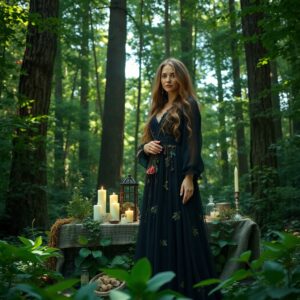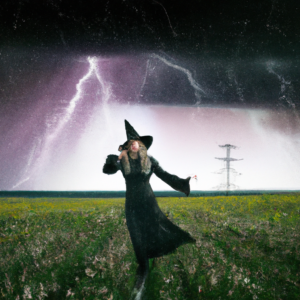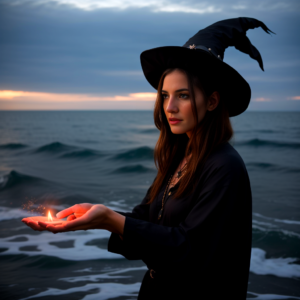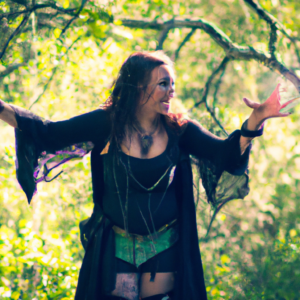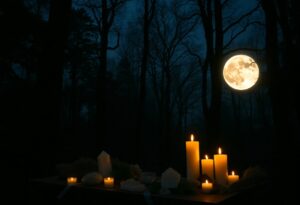
Wicca, the ancient pagan religion steeped in mystery and magic, has captivated the imaginations of people for centuries. At its core, Wicca is a nature-based spiritual path that celebrates the cycles of the Earth, the phases of the Moon, and the intricate balance of the natural world.
Unlike many mainstream religions, Wicca does not have a centralized authority or a single sacred text. Instead, it draws upon a rich tapestry of folklore, mythology, and ancient wisdom passed down through generations. The Wiccan belief system revolves around the concept of the Divine, represented by the God and Goddess, who embody the complementary forces of masculine and feminine energy.
One of the most distinctive aspects of Wicca is its emphasis on the practice of magic, or “the art of causing change to occur in conformity with will,” as famously defined by Aleister Crowley. Wiccans believe that by harnessing the natural energies around them and focusing their intentions, they can manifest positive changes in their lives and the world around them.
The Wiccan rituals and celebrations are intrinsically tied to the cycles of nature. The Wheel of the Year, consisting of eight major sabbats, marks the turning of the seasons and the ebb and flow of the Earth’s energy. From the joyous celebration of Beltane in the spring to the introspective Samhain in the autumn, each sabbat holds its own significance and rituals.
At the heart of Wiccan practice lies the concept of the Threefold Law, which states that whatever energy one puts out into the world, whether positive or negative, will be returned threefold. This belief encourages Wiccans to live in harmony with nature, respect all living beings, and strive for balance and compassion in their actions.
The Wiccan path is not without its challenges, however. Throughout history, practitioners of this ancient faith have faced persecution, misunderstanding, and even prosecution for their beliefs. Despite these obstacles, Wicca has endured and continues to grow, attracting individuals from all walks of life who seek a deeper connection with the natural world and a sense of spiritual fulfillment.
In the modern era, Wicca has evolved and adapted, embracing a diverse range of traditions and practices. From solitary practitioners to established covens, from eclectic paths to more traditional forms, the Wiccan community is a vibrant tapestry of beliefs and customs, united by a shared reverence for the Earth and a desire to live in harmony with the rhythms of nature.
As the world continues to grapple with environmental challenges and the consequences of human actions, the wisdom and teachings of Wicca offer a unique perspective on our relationship with the natural world. By honoring the cycles of life, embracing the power of intention, and striving for balance and harmony, Wiccans seek to forge a path that respects and nurtures the intricate web of life that sustains us all.
